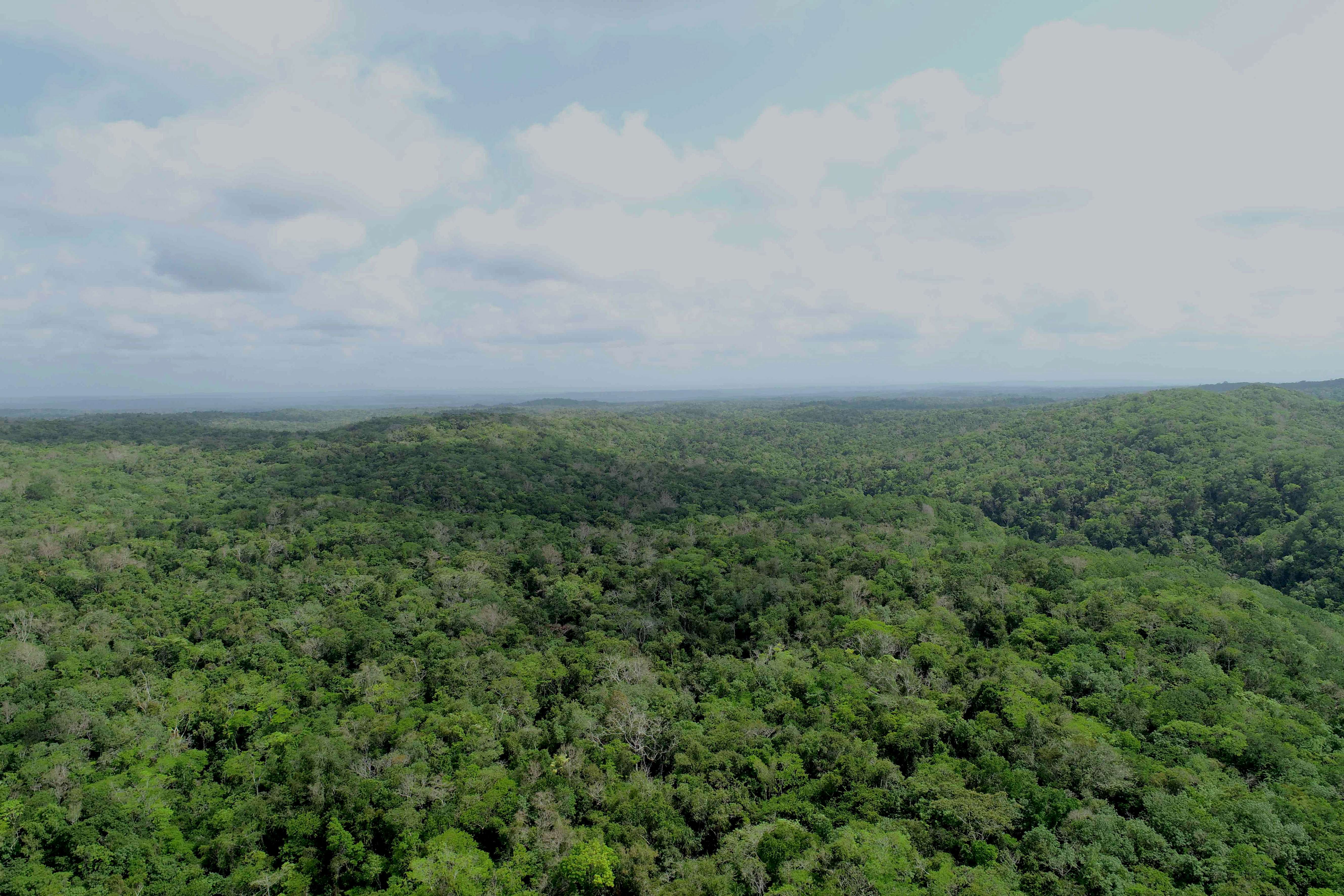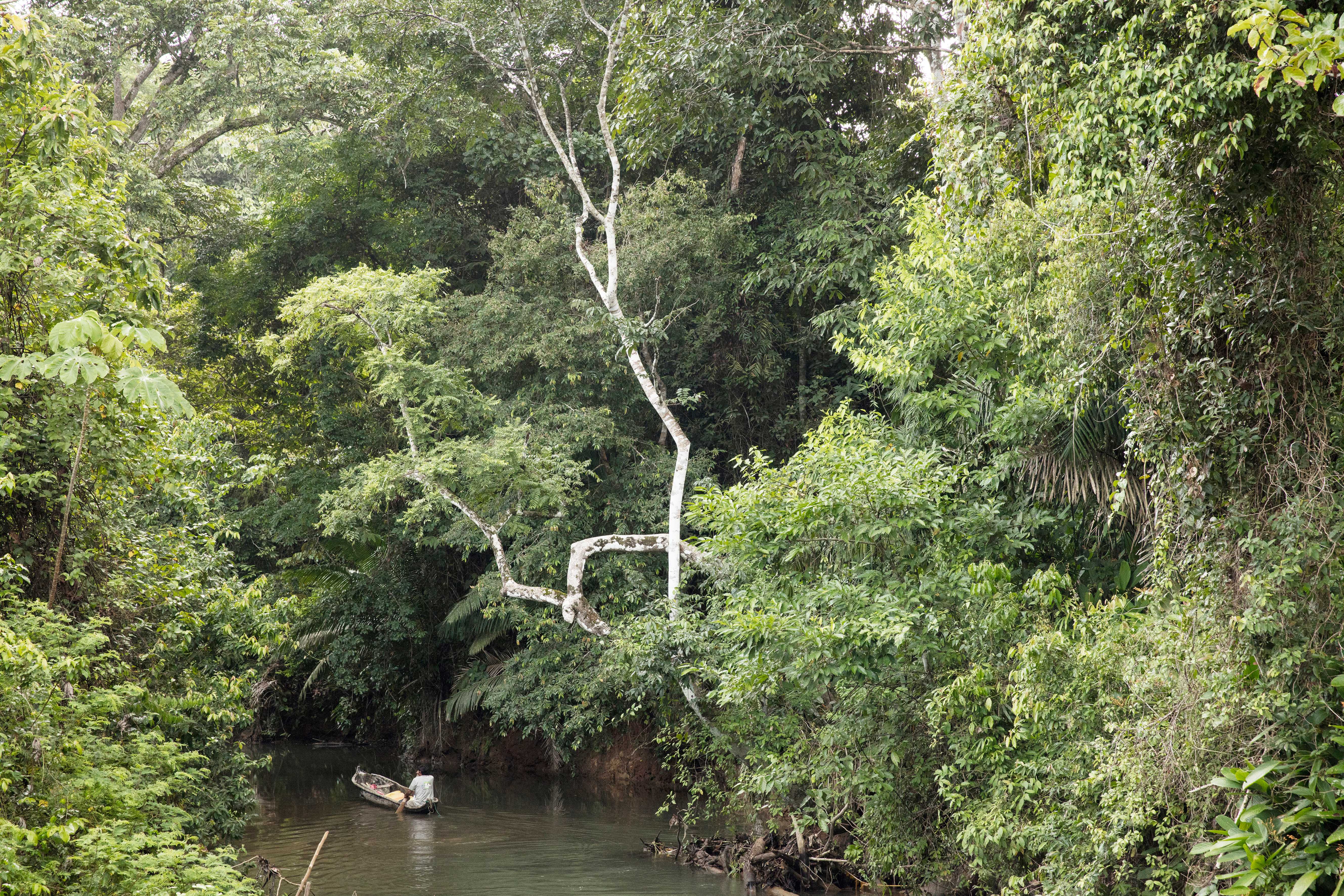
COP26 Indigenous Peoples and Local Communities
Forest Tenure Pledge
2021–2025

2021–2025
The Forest Tenure Funders Group (FTFG) was formed to convene the 25 government and philanthropic donors who endorsed the COP26 Pledge. The group surpassed its $1.7 billion, 5-year commitment after 4 years, mobilizing $1.86 billion to help advance Indigenous and local community land tenure rights, and their role in sustainable forest management, and IP- and LC-led conservation efforts in ODA-eligible tropical forest countries. The COP26 Pledge period will conclude in December 2025, with a final year of reporting to come in 2026.
As the COP26 commitment concludes at the end of 2026, the FTFG launched a renewed, $1.8 billion Forest and Land Tenure Pledge at COP30 in Belém, Brazil.
The COP26 Pledge was created in response to findings that less than 1% of climate finance went to projects supporting IP and LC tenure and forest management between 2011 and 2020, with a much smaller portion going directly to IP and LC organizations. The FTFG is committed to increasing attention to and support for Indigenous and local community forest tenure and guardianship and improving direct support channeled to Indigenous and local community organizations.
We publish an annual report to remain transparent, track progress, and highlight both achievements and challenges. We hope this exercise supports partners, keeping them informed of and aligned in our efforts to meet the $1.7 billion goal and strengthen support for Indigenous Peoples and local communities. To access our other resources, please visit our resources page.
We publish an annual report to remain transparent, track progress, and highlight both achievements and challenges. We hope this exercise supports partners, keeping them informed of and aligned in our efforts to meet the $1.7 billion goal and strengthen support for Indigenous Peoples and local communities. To access our other resources, please visit our resources page.

Throughout the pledge period, we have evolved our approach to remain transparent and accountable. Key learnings from our experience include:
Our work has brought attention to the critical need for funding that reaches Indigenous Peoples and local communities directly. The learnings from the COP26 Pledge were critical to informing the design of the new COP30 commitment.
At COP26 in November 2021, government and philanthropic donors committed $1.7 billion to help Indigenous Peoples and local communities secure their land and forest tenure rights. Known as the Indigenous Peoples' and local communities' Forest Tenure Pledge, this initiative spotlighted the critical importance of IP and LC rights and tenure security for advancing biodiversity conservation and climate mitigation and adaptation. As the first explicit leader-level global public recognition of the importance of tenure rights for Indigenous Peoples and local communities, the Pledge sent strong political, strategic, and financial signals.
The Pledge period runs from 2021 to 2025, and includes both allocated and unallocated funding (including new and existing initiatives), all of which was unspent prior to 2021. Reporting under the Pledge is for finance for work that supports the advancement of Indigenous Peoples' and local communities' land tenure rights and forest guardianship for ODA eligible countries and for communities in and around forests. This includes projects that enable activities to secure, strengthen and protect land and resource rights; enhance Indigenous Peoples' and local communities' territorial and forest management, conservation, and/or governance; channel support to Indigenous Peoples' and local communities and their funding mechanisms; and promote international advocacy and communications on these issues.
As the first leader-level, global public recognition of the importance of tenure rights for Indigenous Peoples and local communities, the Pledge sent strong political, strategic, and financial signals for biodiversity conservation and climate mitigation and adaptation.
Since COP26, funding has grown—including direct support to Indigenous Peoples and local communities—and the global landscape of forest conservation, climate finance, and their rights has shifted. We have seen the emergence of critical organizations, including the Ministry of Indigenous Peoples in Brazil, the Shandia Platform, and a number of Indigenous and local community funding mechanisms such as the Nusantara Fund, the Mesoamerican Territorial Fund, the REPALEAC Fund, Fundo Jaguatá, and the Indigenous Peoples of Asia Solidarity Fund. There have been critical advancements in rights recognition around the globe, including the acknowledgement of 13 new Indigenous Territories in Brazil, titling of over 1.9 million hectares for Indigenous Peoples in Peru, a historic bill on the rights of Indigenous Peoples in the DRC, the implementation of Indigenous Territorial Entities in Columbia, and advances in Indonesia's social forestry program.
At COP26 in November 2021, government and philanthropic donors committed $1.7 billion to help Indigenous Peoples and local communities secure their land and forest tenure rights. Known as the Indigenous Peoples' and local communities' Forest Tenure Pledge, this initiative spotlighted the critical importance of IP and LC rights and tenure security for advancing biodiversity conservation and climate mitigation and adaptation. As the first explicit leader-level global public recognition of the importance of tenure rights for Indigenous Peoples and local communities, the Pledge sent strong political, strategic, and financial signals.
As the first leader-level, global public recognition of the importance of tenure rights for Indigenous Peoples and local communities, the Pledge sent strong political, strategic, and financial signals for biodiversity conservation and climate mitigation and adaptation.
The Pledge period runs from 2021 to 2025, and includes both allocated and unallocated funding (including new and existing initiatives), all of which was unspent prior to 2021. Reporting under the Pledge is for finance for work that supports the advancement of Indigenous Peoples' and local communities' land tenure rights and forest guardianship for ODA eligible countries and for communities in and around forests. This includes projects that enable activities to secure, strengthen and protect land and resource rights; enhance Indigenous Peoples' and local communities' territorial and forest management, conservation, and/or governance; channel support to Indigenous Peoples' and local communities and their funding mechanisms; and promote international advocacy and communications on these issues.
Since COP26, funding has grown—including direct support to Indigenous Peoples and local communities—and the global landscape of forest conservation, climate finance, and their rights has shifted. We have seen the emergence of critical organizations, including the Ministry of Indigenous Peoples in Brazil, the Shandia Platform, and a number of Indigenous and local community funding mechanisms such as the Nusantara Fund, the Mesoamerican Territorial Fund, the REPALEAC Fund, Fundo Jaguatá, and the Indigenous Peoples of Asia Solidarity Fund. There have been critical advancements in rights recognition around the globe, including the acknowledgement of 13 new Indigenous Territories in Brazil, titling of over 1.9 million hectares for Indigenous Peoples in Peru, a historic bill on the rights of Indigenous Peoples in the DRC, the implementation of Indigenous Territorial Entities in Columbia, and advances in Indonesia's social forestry program.
Federal Republic of Germany
Kingdom of Norway
Kingdom of the Netherlands
United Kingdom of Great Britain and Northern Ireland
United States of America
Children's Investment Fund Foundation
The Christensen Fund
The David and Lucile Packard Foundation
Ford Foundation
Good Energies Foundation
Oak Foundation
Sobrato Philanthropies
Wellspring Philanthropic Fund
William and Flora Hewlett Foundation
Arcadia
Bezos Earth Fund
Bloomberg Philanthropies
Bobolink Foundation
Gordon and Betty Moore Foundation
International Conservation Fund of Canada
Nia Tero
Rainforest Trust
Re:wild
Rob Walton Foundation
Wyss Foundation
The Protecting Our Planet Challenge (POP) members endorsed the pledge as a group
Federal Republic of Germany
Kingdom of Norway
Kingdom of the Netherlands
United Kingdom of Great Britain and Northern Ireland
United States of America
Children's Investment Fund Foundation
The Christensen Fund
The David and Lucile Packard Foundation
Ford Foundation
Good Energies Foundation
Oak Foundation
Sobrato Philanthropies
Wellspring Philanthropic Fund
William and Flora Hewlett Foundation
Arcadia
Bezos Earth Fund
Bloomberg Philanthropies
Bobolink Foundation
Gordon and Betty Moore Foundation
International Conservation Fund of Canada
Nia Tero
Rainforest Trust
Re:wild
Rob Walton Foundation
Wyss Foundation